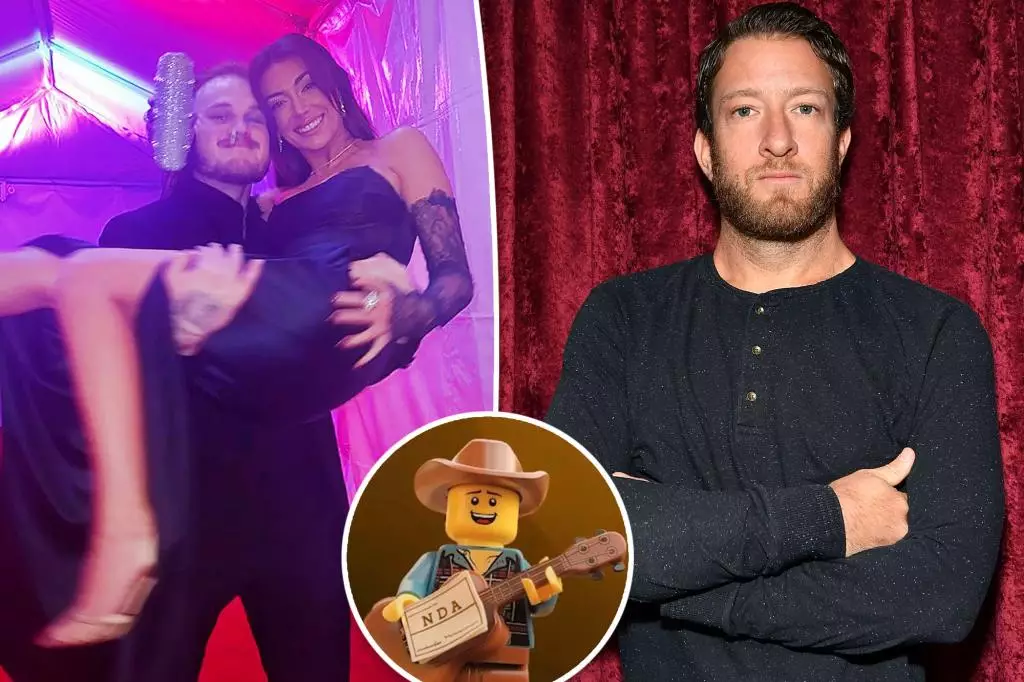The world of social media and celebrity feuds has been set ablaze once again, thanks to the notorious Barstool Sports founder, Dave Portnoy. On a day that seems ordinary at first glance, Portnoy unleashed yet another scathing diss track aimed at country singer Zach Bryan, who recently caused a stir after his breakup with Brianna “Chickenfry” LaPaglia. This new track, titled “Country Diddy,” cleverly juxtaposes Bryan with the controversial figure Sean “Diddy” Combs, connecting the dots between Bryan’s tumultuous personal life and Diddy’s ongoing legal troubles.
Anatomy of the Diss Track
In his latest musical endeavor, Portnoy doesn’t hold back. The lyrics serve as a biting commentary, cleverly using analogies that highlight the alleged troubles Bryan is facing. Lines like “Country Diddy, Country Diddy / Steal another story write another Country Ditty” depict a man potentially guilty of misappropriating experiences, mirroring accusations against Diddy. The track insinuates that Bryan’s stories might not be entirely authentic, raising questions about the integrity of his songwriting amidst personal chaos.
Portnoy’s biting remarks take a direct swipe at Bryan’s legal tactics and accusations of attempting to silence him during his breakup with LaPaglia. He ominously warns Bryan’s lawyers that he remains unfazed by legal intimidation—a common tactic in the celebrity world. From openly mocking the perceived desperation of Bryan to enforce confidentiality agreements to highlighting LaPaglia’s bold refusal of a multi-million-dollar settlement, Portnoy revels in the dramatic fallout of this public dispute.
In an age where social media amplifies celebrity disputes to an audience of millions, it’s worth considering how these public feuds shape public perception. The emotional turmoil that LaPaglia described during her podcast appearances adds layers to the narrative. She detailed her struggles with Bryan, claiming that he attempted to financially manipulate previous partners into silence. By airing these grievances publicly, LaPaglia not only positions herself sympathetically but also encourages listeners to question the motives of celebrity narratives. All of this creates a fertile ground for Portnoy’s diss track, which ultimately becomes a part of this messy public discourse.
The music video for the diss track enriches the experience even further. Featuring a Lego figure donned in a cowboy hat, it adds a whimsical yet biting visual element that complements the lyrics’ dark humor. This distinct choice elicits both laughter and concern, prompting listeners to critically analyze the nature of celebrity and accountability.
Portnoy’s animosity toward Bryan extends beyond personal jabs; it hints at broader implications within the music industry. For one, the issues of NDA agreements and financial settlements cast a questionable light on how artists manage their relationships and public images. It raises the question: How much of an artist’s persona is manufactured, and what are the consequences when the truth comes to light?
LaPaglia’s recent comments about refusing a significant financial offer from Bryan underscore a growing trend among women refusing to be silenced by their powerful partners. As more women begin to share their experiences, it adds to a cultural shift in how we view relationships between artists and their partners. Portnoy’s aggressive critiques help to shed light on this larger issue, providing a platform for more discussions on abuse, manipulation, and the power dynamics present in these relationships.
As the drama unfolds, one thing remains clear: the collision of personal relationships and public personas continues to thrive in the realm of entertainment. While Portnoy’s diss tracks may serve momentary entertainment, they also reflect significant underlying social issues—abuse, manipulation, and the inherent power struggle in celebrity relationships.
In this ongoing saga, the lines between artistry and reality blur further, inviting audiences to take a more critical stance on the narratives presented by public figures. As Portnoy himself vowed to produce an endless string of diss tracks, it seems that this arena of celebrity conflict is far from over, giving audiences much to ponder as new stories emerge. In the end, it opens the door to discussions that transcend mere entertainment—a reflection on the complexities of modern relationships and accountability in the world of fame.

